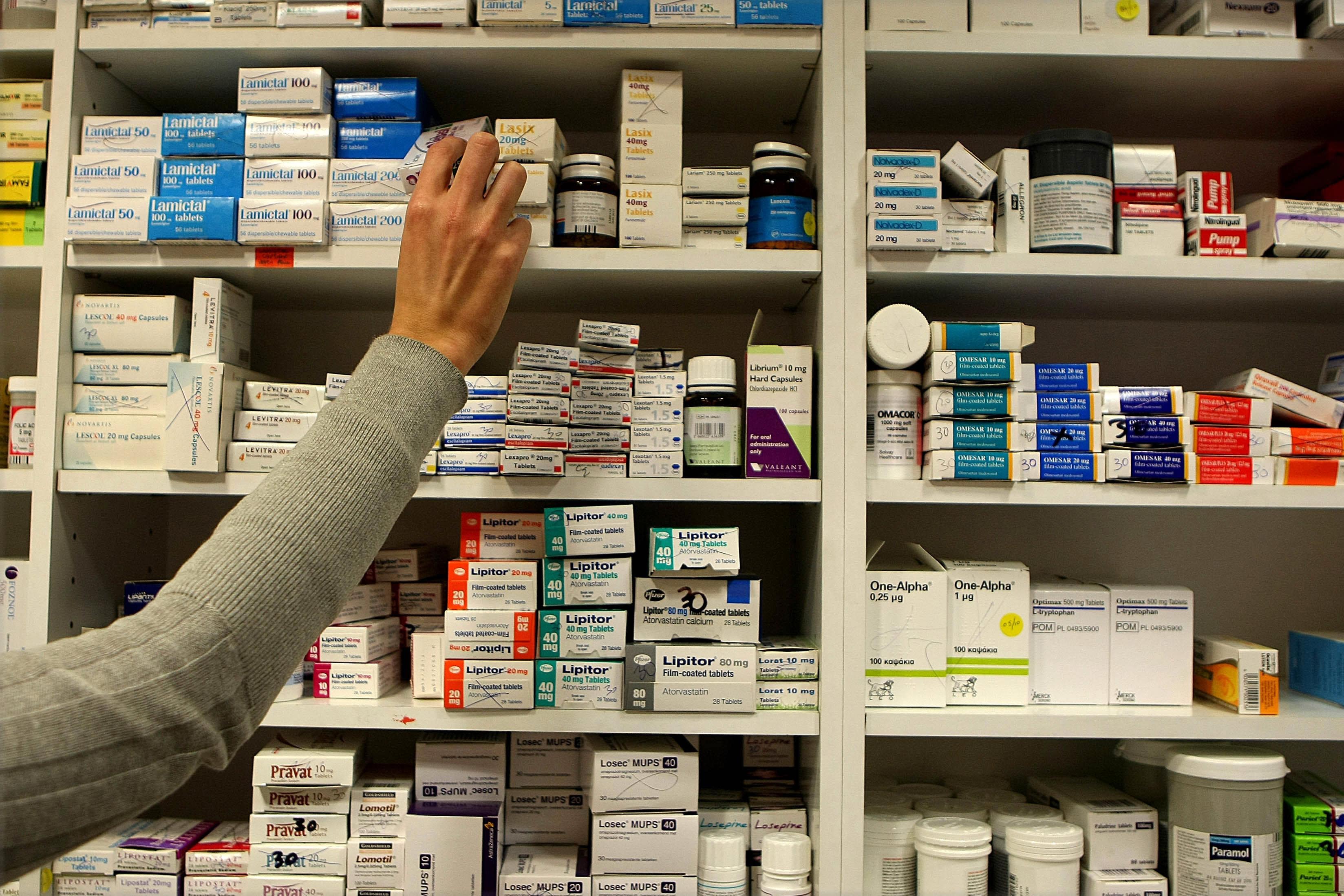Shortages of life saving medicines has become ‘new normal’ for UK after Brexit
‘The medicines supply chain is broken at every level,’ warns Dr Leyla Hannbeck

Shortages of life-saving medication such as antibiotics, epilepsy and cancer drugs compounded by Brexit have worsened the UK’s “ broken” supply chain, researchers have warned.
The government has been urged to carry out a review of the UK’s medicine supply chain by researchers as thousands of alerts over shortages were issued last year.
Experts at the Nuffield Trust think tank described the problem as a “shocking development” that puts pressure on patients, GPs and pharmacists.
Their warnings come following reports of the scarcity of vital chemotherapy drugs, such as cisplatin and carboplatin, and medicine for ADHD.
Analysing freedom of information requests and public data on drug shortages, researchers found there is now more than double the number of notifications from drug companies warning of impending bottlenecks in supply.
Some 1,634 alerts were issued in 2023, up from 648 in 2020.
The researchers said while problems in the UK were not caused by Brexit, leaving the European Union (EU) has exacerbated them.
This is due to the fall in the value of sterling and the UK being removed from EU supply chains.
Research by think tank the Nuffield Trust and academics, which was funded by the Health Foundation, highlighted “underlying fragilities” in both the global and UK medicine supply chain.
Mark Dayan, Brexit programme lead at the Nuffield Trust, said: “We know many of the problems are global and relate to fragile chains of imports from Asia, squeezed by Covid-19 shutdowns, inflation and global instability.
“Officials in the UK have put in place a much more sophisticated system to monitor and respond, and used extra payments to try to keep products flowing.
“But exiting the EU has left the UK with several additional problems – products no longer flow as smoothly across the borders with the EU, and in the long term our struggles to approve as many medicines might mean we have fewer alternatives available.”
There is also a risk of the UK being left out of EU measures to respond to shortages, such as bringing drug manufacturing back to Europe, the report warned.
Professor Tamara Hervey, of the City Law School, said: “There is nothing inevitable about this ‘new normal’ where Great Britain is isolated in efforts to manage fragilities in global supply of the products and people we need to run the NHS. It is the consequence of policy choices and those could be different.”
Researchers also pointed out that Britain has been slower to approve drugs than the EU.
Between 2022 and 2023, four drugs authorised by the European Commission (EC) had been approved faster in Britain. However, some 56 were approved after the EC and eight have not been approved at all in the UK as of March 2024.
However, the report also highlighted other unique issues for the UK market, including a change in demand for the medicines prescribed by doctors.
One example used was prescriptions for hormone replacement therapy (HRT) for menopausal women, which increased by 40 per cent in 2021/22.
Mr Dayan added: “The rise in shortages of vital medicines from rare to commonplace has been a shocking development that few would have expected a decade ago.”
The report warned that the health sector cannot rely on any formal changes to the UK-EU relationship “any time soon” and there are “steps well within the powers of the UK government to address these problems”.
These include better-anticipating shortages and being more open about them, as well as being wary of sudden squeezes on cost driving instability.
Louise Ansari, chief executive at Healthwatch England, warned that “shortages of vital medication can have a detrimental impact on people’s condition, and their lives”.
“We are calling on the government to carry out a review of the medicine supply chain to ensure medicine safety and resilience,” she added.
Dr Leyla Hannbeck, chief executive of the Association of Independent Multiple Pharmacies (AIMp), said: “The medicines supply chain is broken at every level and unless the Department of Health and Social Care reviews its processes and procedures, we will never achieve the stability that will guarantee patients their prescription when they need it.
A Department of Health and Social Care spokesperson said: “There are around 14,000 licensed medicines and the overwhelming majority are in good supply.
“Medicine supply issues do not only affect the UK, and we have a range of well-established processes and tools to manage them when they do occur. That’s why most supply issues have been swiftly managed with minimal disruption to patients.”
Join our commenting forum
Join thought-provoking conversations, follow other Independent readers and see their replies
Comments
Bookmark popover
Removed from bookmarks